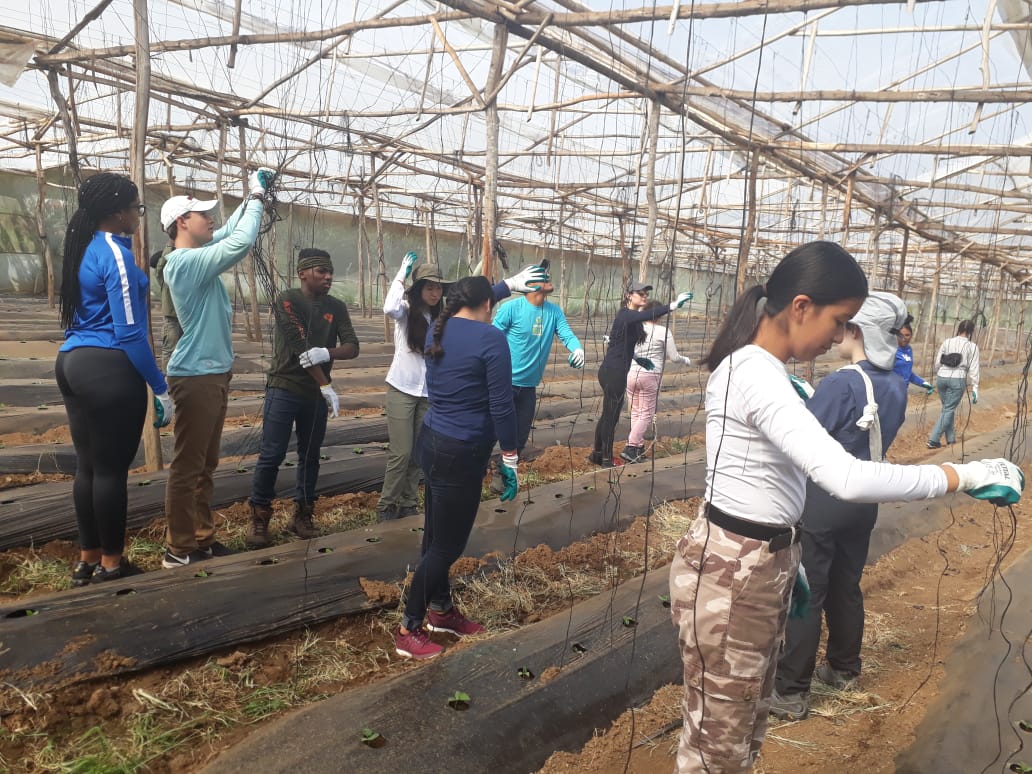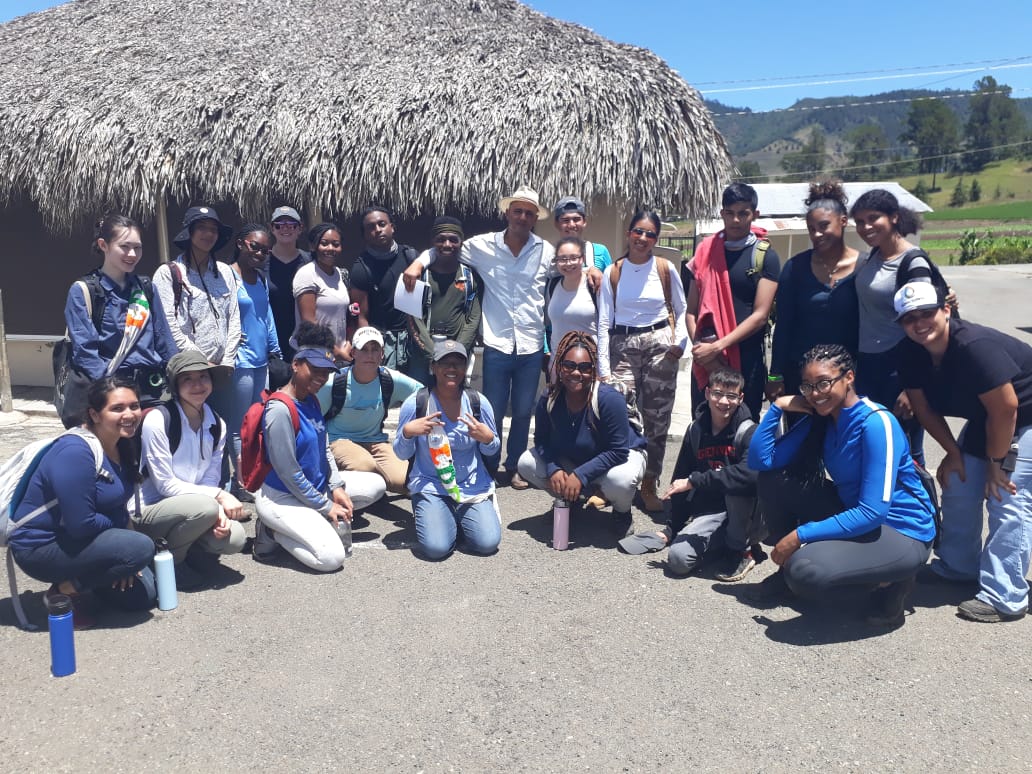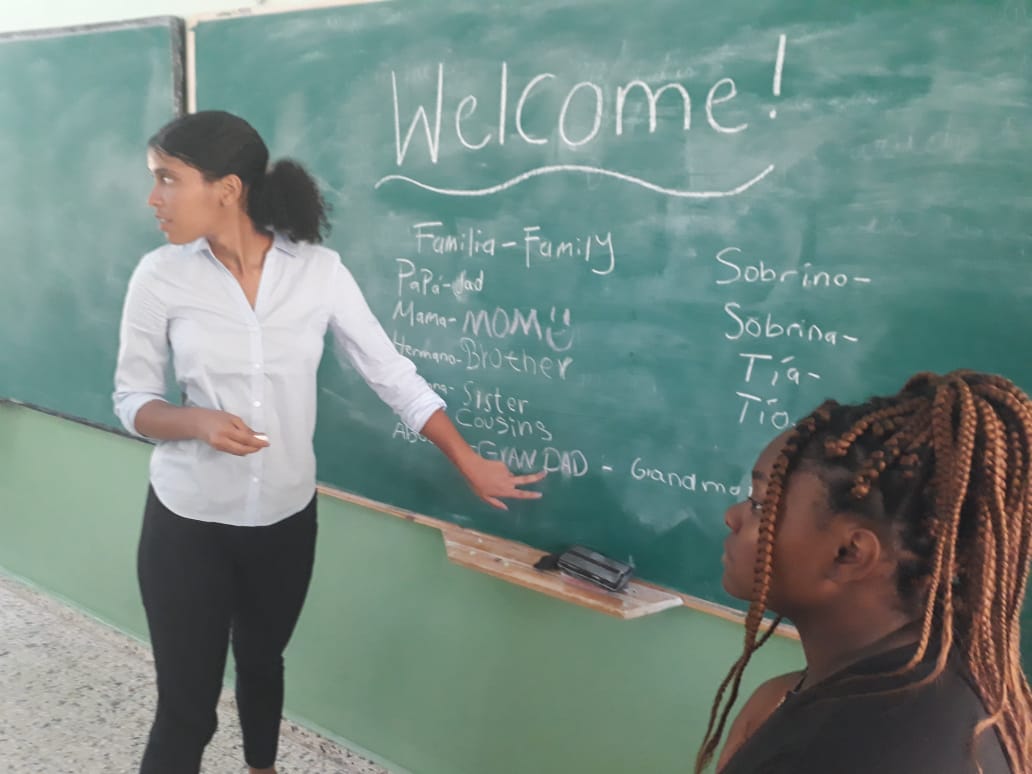Our central focus of the day was how we can practically balance economic development with the protection of our environment and human rights. The main activities of the day were working on a local farm picking cucumbers, touring at a cucumber exportation facility, and teaching our first English classes.
We started the day off by going to the greenhouses on a cucumber farm. The farm was run by Alberto Quesada, a man whose family had been in the agricultural business for many generations. He had changed the way the farm was run by implementing the greenhouses we had worked at. Greenhouses improve the output of a farm because it shields the crop from the harsh sun and wind. Our job in the greenhouse was to prepare the string the cucumbers were to grow around and pick the ripe cucumbers. We were all very impressed by the massiveness of each cucumber, but also by how hard the work was. The workers at the farm were very willing to show us what cucumbers to pick and tell us about their experiences working there. Quesada, the owner of the farm, and Bienbo, the foreman, told us a lot about working on the farm and the different markets that they sell their crop to. We were inspired by Quesada’s honest explanations of the agriculture industry and his advice on life.
After lunch, we took a tour of the cucumber packing company which exported cucumbers for Mama Mia and other vegetable companies. These companies sell their products in the United States of America. We were all very shocked by the strict regulations on the visual appearance of the cucumbers. Many of us couldn’t tell apart the cucumbers classified as grade 1 or 4, though their selling price was very different. The cucumbers that were rejected were given back to the farms that sent them, but they often didn’t have other markets to sell them to. They said that this is because the farms produce to sell to America. Overall, the experience taught us all to care much more about the food we put on our plate and what we waste. The journey taken to bring the food to our plates is much longer than we expect. When our speaker at the facility told us to think about them when we see their cucumbers on the shelves in America, we realized their words held more value than we thought. We realized that as consumers, we had much more responsibility than we accounted for.
Our last activity for the day was English tutoring. This was our first time meeting our students and teaching the lessons we had planned previously on the trip. Many of us were very excited, but also nervous about it. Some of us had hard times with our classes whereas others had a productive lesson. This is because the students ranged in age from young children to older adults and in class size from one student to more than a dozen. No matter the difficulty, we pushed through and came out feeling accomplished. Seeing the school facility was an eye-opening experience and a chance to reflect on our lives back home. While some of us acknowledged that these classrooms were larger than the ones they had at home, others were shocked by the lack of supplies they had considered normal back at home.
In our nightly meeting, we talked about how we could impact our communities back home with the lessons we had gotten here and the values we had reconsidered. Today was one of our most physically exhausting days, but also one of our most fulfilling.




Sounds like you had a meaningful busy day!
Love you so much, Kiki!
hey hurley, thanks for the quick phone call. i had so much to ask you and so little time. it sounds like a great experience. keep enjoying yourself and taking it all in. we miss you very much! xoxo mom, sage, avery and selby
Hi Jordan it’s grandma even if we are in Puerto Rico, We are glad to hear that you guys are having a great time! We love you and miss you! Love you 😘😘
Hi Rish, so happy to hear that you are having fun. It was great to hear from you. We love you and we miss you. xoxo, the 3 of us
Jordan,I was so happy to hear from you today! There was never a doubt in my mind of the impact your presence would make. Keep up the great work! Proud of you always. Xoxo mom
Ps-take pics!!
Thank you for the 2min phone call Ashley P. 😊
Keep up the great work guys 👍🏼👍🏼
The greenhouses look amazing! So cool you were all able to experience that. I was so happy to here your voice this morning & so glad you are enjoying the experience,.
Miss you Josi!
Love Mom